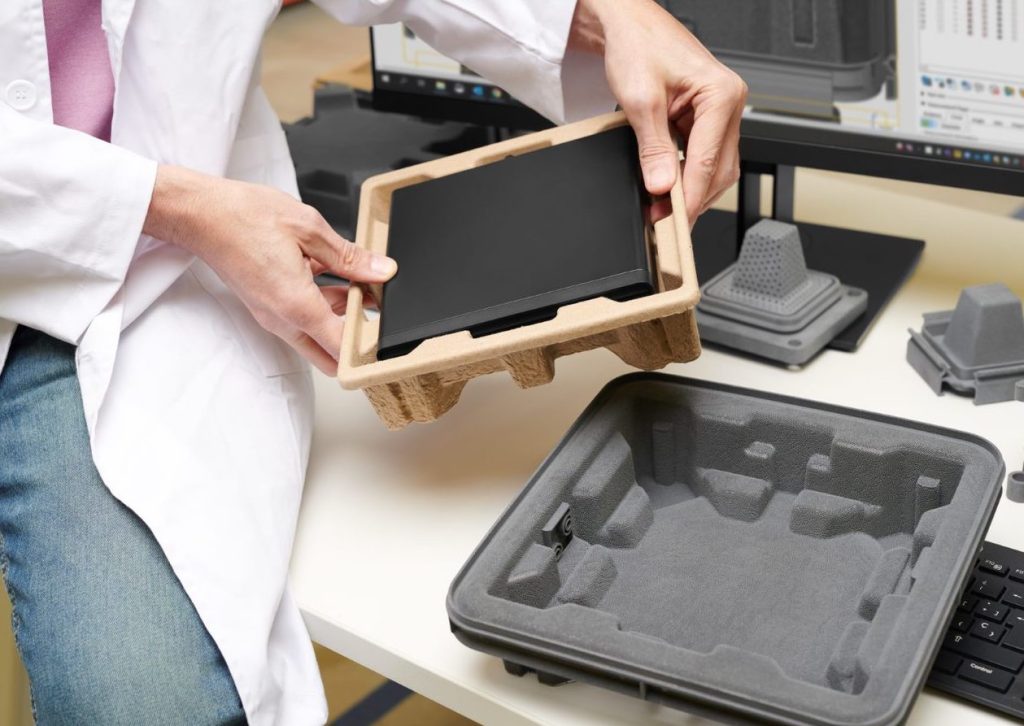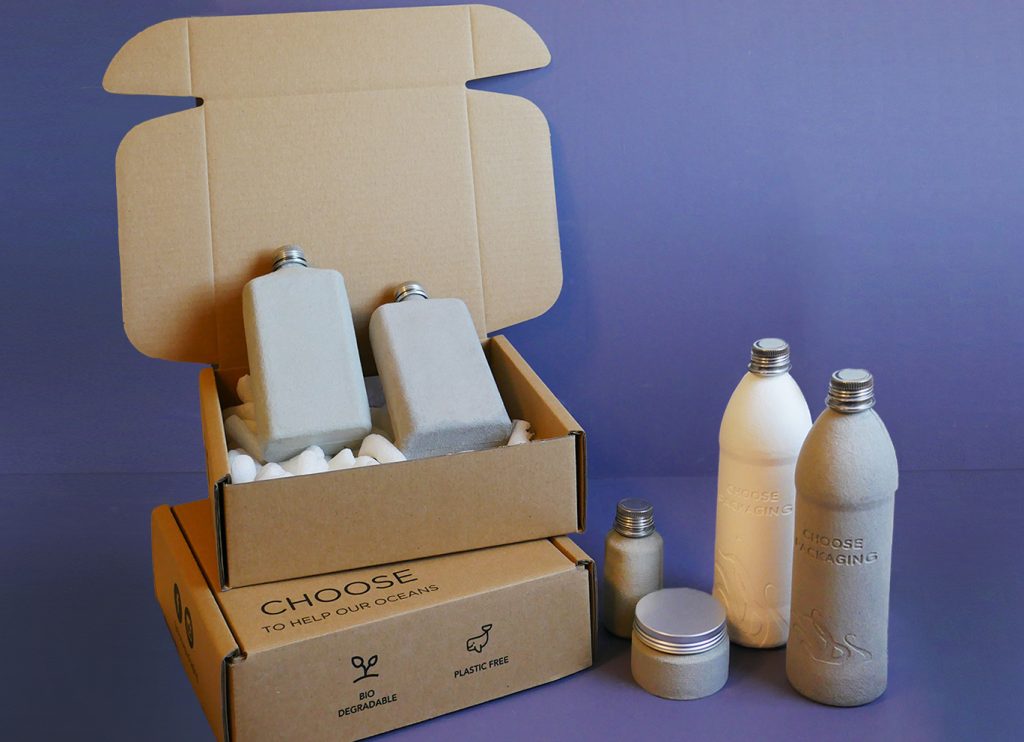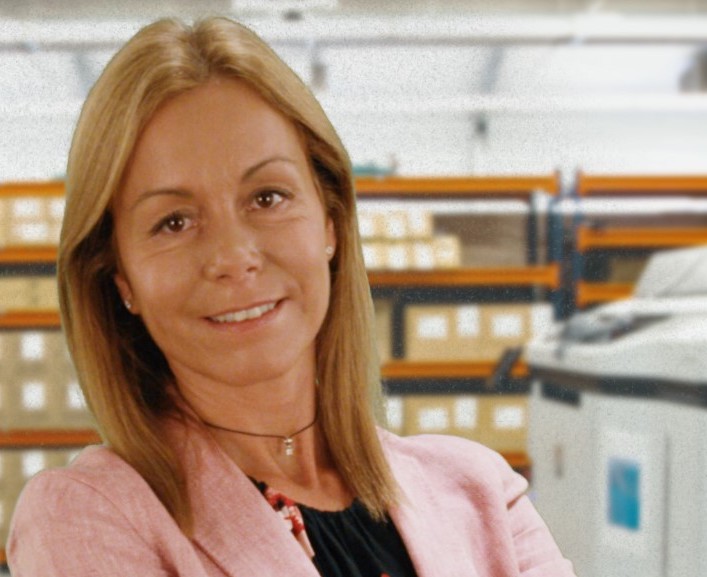Insiders and analysts have made their predictions on the 3D printing trends to watch out for. Find out more in our series focused on the future of 3D printing.
Multinational printing firm HP has bolstered its plans to disrupt the eco-friendly packaging market with the acquisition of plastic-free product wrapping developer Choose Packaging.
Bought for an undisclosed fee, Choose Packaging specializes in the development of paper-based alternatives to plastic bottles, made from all-natural ingredients. By acquiring and integrating the firm into its Personalization & 3D Printing division, which already houses its Molded Fiber Tooling offering, HP aims to develop new packaging solutions that better address a market it values at $10 billion.
“This acquisition is a great example of how we continue to strengthen our capabilities in attractive verticals like sustainable packaging, while also driving progress against HP’s broader sustainability goals,” said HP’s Chief Strategy & Incubation Officer Savi Baveja. “Choose has built a truly differentiated technology and we are excited to welcome this talented team to the HP family.”

Buying into biodegradable bottles
Based in Edinburgh, Choose Packaging is a company that works to minimize pollution through the development of plastic-free substitutes for everyday products. To make these eco-friendly alternatives possible, the firm has developed its own unique production technology, in which bottles can be constructed from a paper casing lined with a plant-based PET-free waterproof material.
Choose Packaging’s bottles also feature fully-recycled paper labels printed with bio-inks, as well as a metal cap designed to rust into naturally occurring minerals, and an EU compostability standard EN 13432-compliant outer casing.
When it comes to marketing its technology, the company not only sells a range of bottles to the public, designed to hold soap and hand sanitizing products, but it supplies larger firms such as Accolade Wines and Henkel as well. The latter, which has a strong 3D printing material offering of its own, says that HP’s Choose Packaging acquisition could now be a ‘game-changer’ for sustainable wrapping.
“Henkel drives active progress towards a circular economy by creating smarter packaging for the benefit of people and the planet,” said Berthold Schreck, R&D Vice President of Laundry Care at Henkel. “Choose and HP bring together a game-changing combination of packaging technologies and we are excited to collaborate to develop new sustainable packaging solutions and reduce plastics in our consumer goods products.”

‘Disrupting strategic vertical markets’
Although HP isn’t prepared to disclose the financials behind its latest purchase, it has confirmed that Choose Packaging’s employees and facilities will remain in Edinburgh following the deal. The company also says that it’s looking to pour “additional resources” into its acquisition, in order to turn its production complex into a Center of Excellence, where it can truly “accelerate industry disruption.”
Already, Choose Packaging is using HP’s 3D printing-enabled Molded Fiber Tooling approach to scale its production workflow. Launched in September 2020, the technology is effectively designed to automate the traditionally-manual tooling manufacturing process, and enable the production of molded fiber packaging from recycled paper products and plant fibers.
“HP’s Molded Fiber solution optimizes the manufacturing process and quality of parts,” explains Mariona Company, HP’s Global Head of Molded Fiber Solutions. “The solution is designed to enable fiber-based products to be brought to market faster and more affordably by reducing the packaging production cycle time by 50% and using 15% less material.”
Through adopting Molded Fiber Tooling, HP ultimately believes Choose Packaging will be able to develop a product-wrapping alternative that “paves the way for a new standard for bottling solutions globally.” Moving forwards, following Choose Packaging’s incorporation into its Personalization & 3D Printing division, HP also intends to scale its approach, and disrupt the packaging market in a new way.
“Using HP tooling is enabling Choose to increase volume and scale, and address a $10 billion market opportunity ready for disruption,” added Company. “Choose’s technology, brand engagements and pipeline of innovation, coupled with HP’s digital manufacturing expertise and industry-leading 3D printing technology and software/data workflows, will be truly transformative for the industry.”

HP’s Multi Jet Fusion offering
While HP’s portfolio is designed to address a broad set of market verticals, many of which don’t relate directly to 3D printing, it has managed to convert a number of traditional manufacturers into adopters of its Multi Jet Fusion (MJF) machines.
This has particularly proven the case in the automotive sector, and last March, Japanese firm SOLIZE revealed that it had begun using a HP MJF system to 3D print heritage Nissan car parts. Working as part of Nissan’s Heritage Parts program, the company found it was able to produce discontinued components via a digitized inventory setup, that improved both their efficiency and cost of manufacture.
MJF is also offered by most leading 3D printing service providers, including the likes of 3DPRINTUK, which revealed that it had installed a new HP 5210 machine as part of its £1 million expansion in late-2020. At the time, the firm said that it intended to use the system to bolster its batch and bespoke polymer part production capabilities.
Elsewhere, the technology has been installed by multiple individual manufacturers as well, such as Abeye, a French start-up that has previously used MJF to 3D print smart glasses frames. Weighing in at just 35 grams, these frames are said to feature a button that triggers the activation of acted and tinted lenses, which filter out the mirror images that cause reading difficulties among dyslexic kids.
To stay up to date with the latest 3D printing news, don’t forget to subscribe to the 3D Printing Industry newsletter or follow us on Twitter or liking our page on Facebook.
For a deeper dive into additive manufacturing, you can now subscribe to our Youtube channel, featuring discussion, debriefs, and shots of 3D printing in-action.
Are you looking for a job in the additive manufacturing industry? Visit 3D Printing Jobs for a selection of roles in the industry.
Featured image shows a part produced using HP’s Molded Fiber Advanced Tooling solution. Photo via HP.


